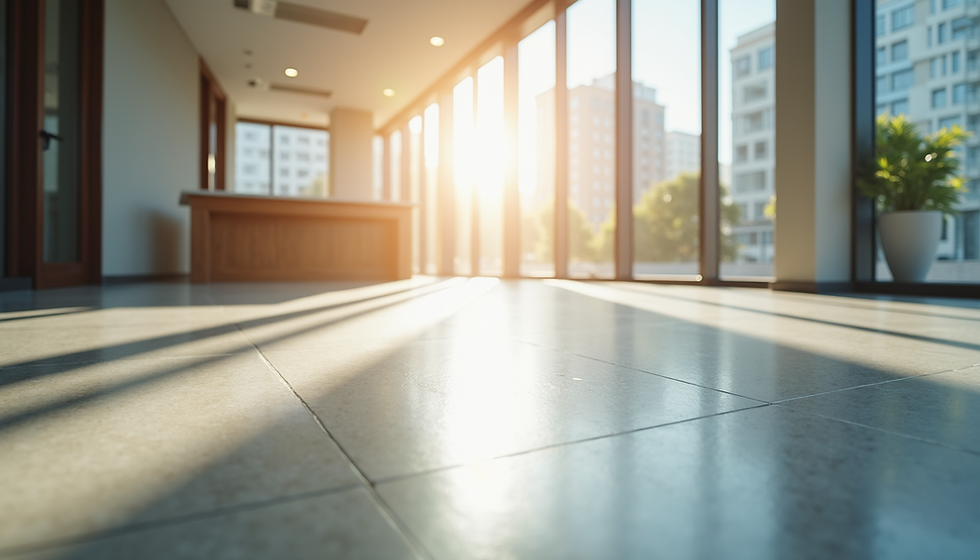Epoxy vs. Polyaspartic: Which Garage Floor Coating is Right for Your Massachusetts Home?
- Carter Banks
- Nov 14, 2025
- 3 min read

Your garage is more than just a place to park your car—it’s a workshop, a storage hub, and, in New England, a battlefield against road salt, moisture, and extreme temperature shifts. When you decide to elevate that space, the floor is the foundation, and you face the biggest decision: Epoxy or Polyaspartic?
Both offer tremendous durability, stain resistance, and a beautiful, high-gloss finish far superior to bare concrete. However, there are crucial differences in cost, application, and—most importantly for Mago Flooring customers across Massachusetts and neighboring states—how they perform in our climate. We're breaking down the ultimate garage floor coating face-off to ensure you choose the system that delivers the fastest return to use and the longest-lasting protection.
1. Deep Dive: Epoxy Flooring (The Classic & Affordable Choice)
Epoxy has been the standard for garage floor coatings for decades, and for good reason. It's a two-part material (a resin and a hardener) that creates a thick, hard plastic layer when mixed and cured.
The Pros of Epoxy:
Cost-Effective: Generally has a lower material cost than polyaspartic systems.
Thickness: Provides a very dense, robust barrier against impacts and heavy machinery.
Proven Track Record: It’s a reliable, tested solution used in countless residential and commercial spaces.
The Cons of Epoxy (The Massachusetts Challenge):
Slow Cure Time: Epoxy typically requires 3 to 7 days to fully cure. This means your garage space is unusable for a week, which is inconvenient for busy homeowners and businesses.
Temperature Sensitivity: It must be applied within a moderate temperature window. Applying in the dead of a New England winter or a scorching summer can lead to poor adhesion or "blushing."
UV Instability: Over time, especially when exposed to direct sunlight (near the open garage door), epoxy can suffer from "ambering" or yellowing, degrading the floor's aesthetic.
Rigidity: Epoxy is rigid. Concrete naturally shifts and cracks with temperature changes; this rigidity can sometimes lead to the epoxy layer chipping or cracking under pressure.
2. Deep Dive: Polyaspartic Coating (The Modern Champion)
Polyaspartic is a type of polyurea, a synthetic material developed in the late 1990s as a high-performance protective coating. It has quickly become the premium standard for garage and industrial floor finishing.
The Pros of Polyaspartic:
Rapid Cure Time: This is the game-changer. Polyaspartic can cure in as little as 24 to 48 hours. You can get your garage back in just one weekend!
Exceptional Durability: It's more flexible than epoxy, giving it superior resistance to abrasion, scratches, and damage from dropped tools.
UV Stability: Polyaspartic is 100% UV stable. It will never yellow or fade, maintaining its color and gloss for life, even with daily sun exposure.
Temperature Flexibility: Our technicians at Mago Flooring can successfully apply Polyaspartic in a much wider range of temperatures, meaning we can schedule your renovation reliably throughout the year—a huge benefit in the unpredictable MA climate.
The Cons of Polyaspartic:
Higher Cost: The material cost is higher than epoxy.
Professional Application is Essential: Polyaspartic cures so quickly that it is extremely difficult for DIY applications. It requires specialized equipment and the practiced hand of Mago Flooring professionals to ensure a perfect, seamless finish.
3. Mago Flooring's Verdict: Choosing the Right Coating
When advising our Massachusetts clients—from homeowners to commercial properties—Mago Flooring weighs performance against climate and lifestyle.
Feature | Epoxy (Classic) | Polyaspartic (Premium) | Recommended for MA |
Cure Time | 3-7 Days | 1-2 Days | Polyaspartic (Minimal disruption) |
UV Resistance | Can yellow | Will NOT yellow | Polyaspartic (Superior long-term look) |
Flexibility | Rigid | Flexible/Crack Resistant | Polyaspartic (Better defense against concrete movement) |
Ideal Project | Low-traffic, indoor utility rooms, or budget-focused projects. | High-traffic garages, workshops, and commercial spaces needing the best durability. |
While Epoxy offers a good solution for budget-conscious projects, Polyaspartic is the superior investment for long-term durability, quick installation, and maintaining a high-quality aesthetic in a high-traffic, climate-exposed space like a Massachusetts garage.
Ready to Elevate Your Garage Floor?
Don't settle for a coating that can't handle the harsh New England seasons. At Mago Flooring, we specialize in professional Polyaspartic and Epoxy installations, ensuring meticulous prep work and a flawless finish every time.
Contact Mago Flooring today for a free on-site quote in Boston, Worcester, or anywhere across Massachusetts and neighboring states!










Comments